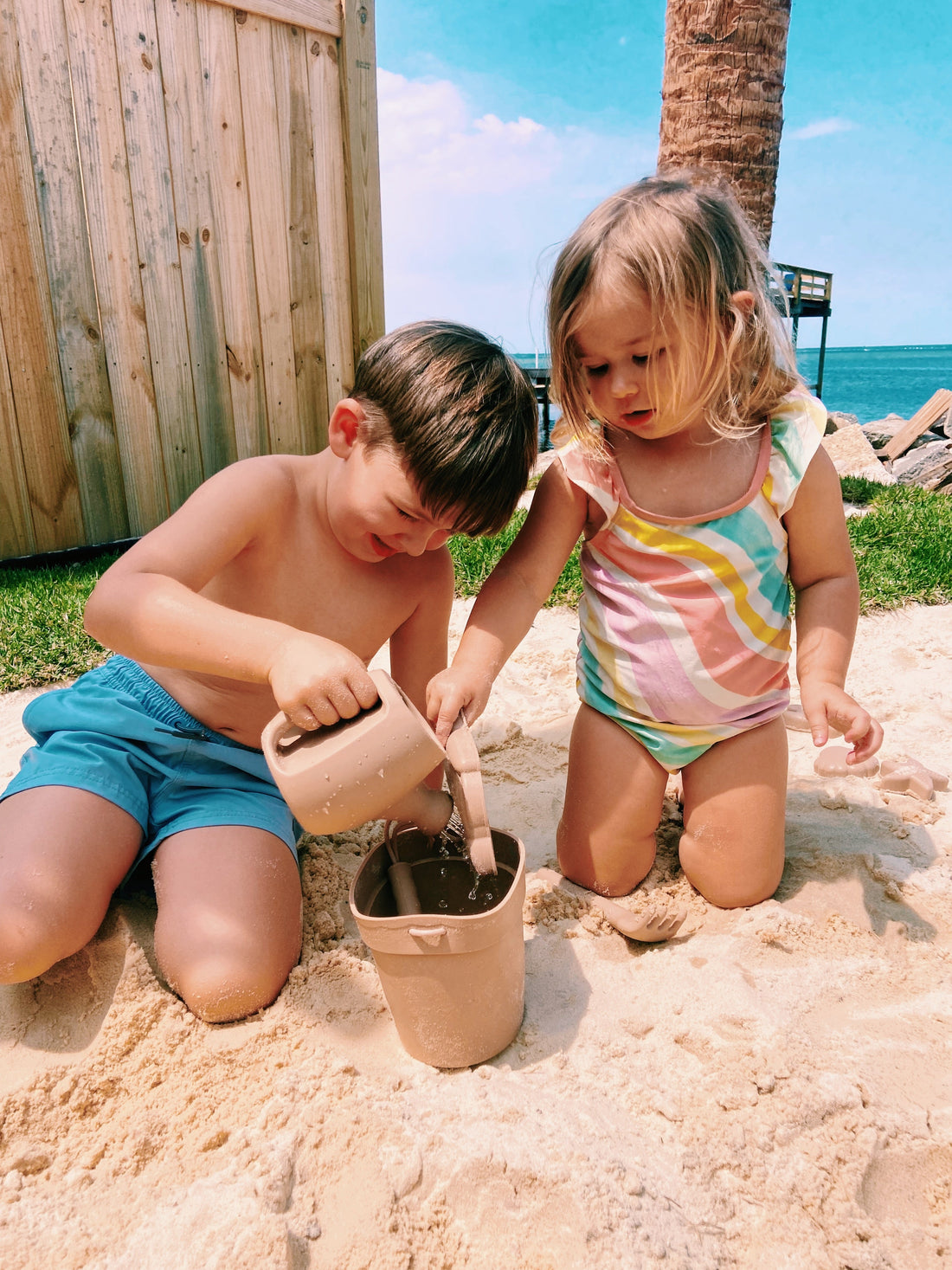Summertime calls for some splashy fun in the water, especially when you have a toddler. Whether you're heading to the pool or beach, it's crucial to prioritize water safety to ensure a delightful and secure experience for your little one. In this post, we'll provide you with essential tips to help you keep everyone safe while enjoying the water with your toddler.
Active Supervision: First and foremost, never leave your toddler unattended near water, even if it's just a few inches deep. Designate a responsible adult or parent to actively supervise your child at all times. Avoid distractions like electronic devices or engaging in lengthy conversations that divert your attention from your child's activities in the water.
Teach Basic Water Skills: Introduce your toddler to basic water skills to help build their confidence and familiarity with the water. Start with simple activities like blowing bubbles, floating, and kicking legs. Encourage them to hold onto the pool's edge or a flotation device while they practice these skills. Remember, these skills don't replace constant supervision but can be an added layer of protection.
Choose Age-Appropriate Floatation Devices: When selecting a flotation device, opt for age-appropriate and properly fitted ones. Ensure the device meets safety standards and is approved for use by toddlers. Life jackets are highly recommended, especially for boating or when swimming in open water. Remember, floatation devices should never replace adult supervision.
Establish Pool/Beach Rules: Before entering the water, establish clear rules and boundaries for your toddler. Teach them about the importance of staying within designated areas, not running near the pool, and never going near the water without an adult. Reinforce these rules consistently to instill a sense of responsibility and understanding.
Create Barriers and Barriers: Implement physical barriers, such as pool fences or gates, to prevent unsupervised access to the water. Make sure the barriers are well-maintained, tall enough, and cannot be easily climbed by a curious toddler. At the beach, always keep a close eye on your child and establish a visible landmark or flag to help them identify your location easily.
Sun Protection: Water safety isn't just about preventing accidents—it's also about protecting your toddler from the sun's harmful rays. Apply a waterproof sunscreen with a high SPF to their exposed skin and reapply it regularly, especially after water play. Dress them in a wide-brimmed hat, sunglasses, and a comfortable, UV-protective swimsuit.
Learn CPR and First Aid: Familiarize yourself with cardiopulmonary resuscitation (CPR) techniques and basic first aid procedures. Having these skills can be invaluable in case of emergencies. Many organizations offer CPR and first aid certification courses specifically tailored for parents and caregivers.
While water activities can bring immense joy to toddlers, prioritizing water safety is paramount for a worry-free experience. By actively supervising your child, teaching them basic water skills, and implementing safety measures such as barriers and rules, you can create an environment where fun and safety coexist. Remember, nothing can replace vigilant adult supervision, and it's essential to stay educated on water safety practices to ensure a memorable and secure time with your little one by the pool or beach.

